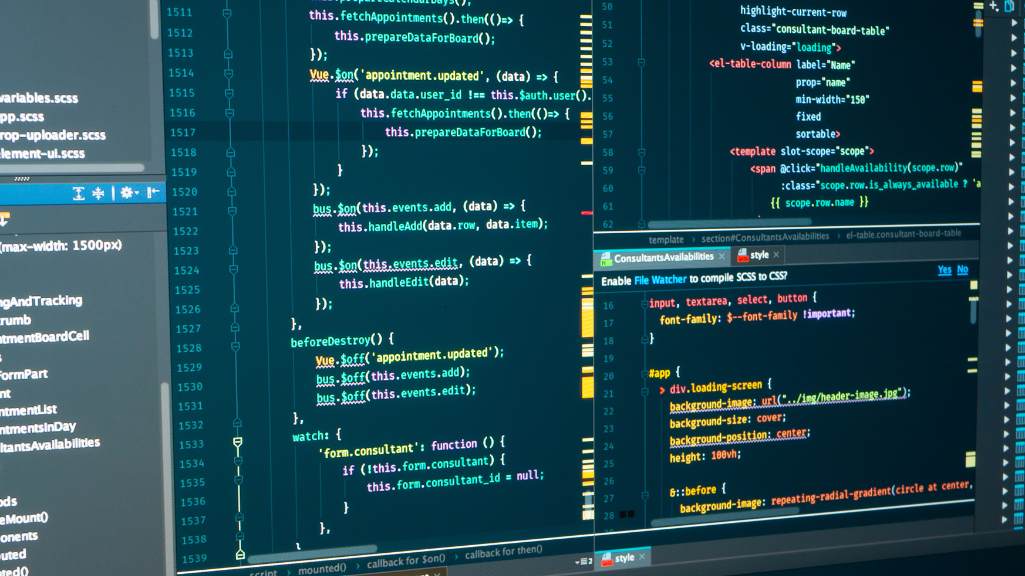Coding Standards for AutoIt: Creating High-Quality Code
Alvish Asher
. 2 min read
Coding, also known as computer programming, is the process of communicating with computers by writing instructions. It enables us to provide computers with the necessary actions to perform. Learning to code empowers individuals to give computers faster and more efficient instructions, which can be utilized for various purposes such as developing websites, creating applications, processing data, and more. Regardless of your background or aspirations, coding is a skill that can help you achieve your goals. Everyone has the potential to learn how to code through online chat.

The Importance of Coding
Coding offers numerous benefits beyond career development and personal interests. Understanding how to code enhances logical thinking, problem-solving skills, and creativity. It also presents opportunities for high-income potential and a wide range of job prospects. Additionally, coding enables individuals to work smartly and efficiently, elevating their careers to new heights. Moreover, it provides a deeper understanding of technology and empowers individuals to create their own applications or start their own businesses. Coding has the potential to positively impact various aspects of our lives.
The Significance of Coding Guidelines
Why are coding guidelines crucial for a coder's success?
Without clearly defined coding standards, developers may adopt their own methods, leading to several negative consequences, including:
- Security Concerns: Inconsistency, bugs, and logical errors resulting from poor coding practices can make software vulnerable to attacks. Adhering to coding standards helps minimize security risks.
- Performance Issues: Poor coding practices can adversely affect a system's performance. Performance issues may arise due to factors such as user interactions, server response problems, code reusability, and code flow. Following coding standards promotes efficient and optimized code.
Fundamentals of AutoIt Programming Language
AutoIt is an interpreted programming language. Interpreted languages execute instructions directly without the need for prior compilation into machine-language instructions.
Variables: In computer programming, variables store information and are associated with symbolic names. They can hold known or unknown quantities of data.
Comments: Comments in computer programming are programmer-readable explanations or annotations within the source code. They provide additional information and improve code readability.
Data Types: Data types in computer science define attributes of data and inform the compiler or interpreter about how the data will be used.
Declaration and Initialization
- Declaration: It is a statement used to specify the variable's name and data type, informing the compiler about the existence and location of an entity in the program.
- Initialization: It is the process of assigning a value to a variable. Each programming language has its own method of initializing variables.
Basic Syntax
The basic form of declaring a variable is:
autoitCopy code type identifier [= value] [, identifier [= value]]…];
Rules for Declaring and Initializing Variables
- Variable names must begin with a letter, underscore, or non-numeric character, following language-specific conventions.
- Some programming languages, like PHP, Python, and Perl, do not require explicitly specifying the data type.
Static Analysis and Code Review as Code Improvement Tools
Static analysis techniques, such as technical reviews and specialized utilities (static analyzers), help check code compliance with standards. During the review process, responsible specialists refer to internal coding standards and checklists based on those standards. Detected issues are fixed and communicated to the author for correction. The benefits of code analysis include improved code quality, enhanced skills of the code author, and increased readability, understandability, and supportability of the code.
Conclusion
Adhering to coding standards best practices results in ethical code that is flexible and efficient, meeting performance criteria. Consistent coding standards promote code readability, easier maintenance, and overall improvement of code quality. Development organizations recognize coding standards as essential for successful projects, as they enable teams to meet deadlines, impress clients, and achieve their objectives. Neglecting coding standards can hinder progress and compromise the fulfillment of client demands. By embracing coding standards, development teams can ensure code quality and elevate their applications to success.
More Stories from
Unleashing the Power of Bluetooth Speakers: A Guide to Wireless Audio Innovation
This article explores the transformative journey of Bluetooth speakers, from their humble beginnings to becoming a must-have accessory for music enthusiasts.
The Evolution of Smartwatches: A Technological Marvel on Your Wrist
This article explores the evolution of smartwatches, from their humble beginnings as notification displays to the multifunctional devices they have become today.
International Telecommunication Union (ITU): Bridging the Global Digital Divide
The International Telecommunication Union (ITU) is a specialized agency of the United Nations, dedicated to promoting global connectivity.
Illuminating the Future: A Comprehensive Guide to Light Emitting Diodes (LEDs)
Discover the history, working principles, and diverse applications of LEDs, from lighting and displays to automotive advancements.
The World Wide Web: Connecting Humanity Across Time and Space
From its inception by Sir Tim Berners-Lee to its exponential growth, learn how the Web revolutionized communication, commerce, and society at large.
.png?height=40)









.png?width=40&aspect_ratio=1:1)
